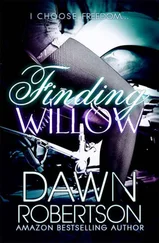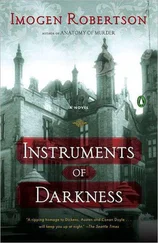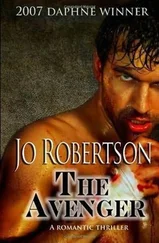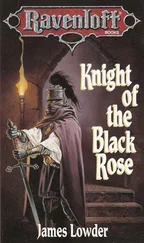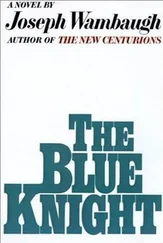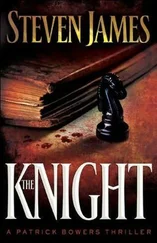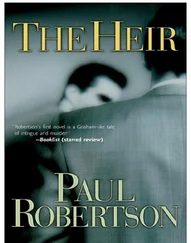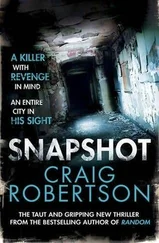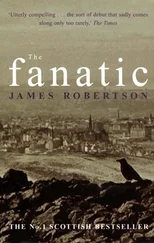By and large, the domestic work at Glen Isla did get done, for all six domestics were aware that they could be relegated to field labour in an instant. They were also kept on their toes by the tongue-lashings and occasional blows of John Wedderburn’s housekeeper, Phoebe.
He could hardly think of Phoebe without prefixing her name, as James jokingly once had, with the word ‘formidable’. She was a creole who had come with the estate at Bluecastle, but James had quickly taken a dislike to her exacting sense of what was proper, and packed her off to work for his brother. Tall and thin, her face pitted with the marks of childhood smallpox, she was no beauty; but she had a head for economy and a nose for discovering theft or laziness, and though Jacob and Julius drove her to distraction at times, she managed them and the others well.
Between her and John Wedderburn there was little affection, certainly no intimacy, only a mutual respect for each other’s cool style. The other slaves feared her, and she despised them: she had cut herself off from them, and did not join in their social life. She had learnt to read, and pored endlessly over an old Bible her master had given her, fancying herself a Christian, although she had never asked for instruction in the faith. She had a room to herself in the house, and probably expected to be given her freedom one day. John expected that one day he would probably give it to her. But if or when that day came, he knew she would not leap for joy, pack her bag and turn her back on the plantation. Where could she go? She would go on running the house, as though she had been free to leave all along but had chosen not to.
The white men lounged in the porch for an hour, drinking Madeira to work up an appetite. Hodge, the only one of them tolerating a wig in the afternoon heat, had brought some books for John Wedderburn: two for him to borrow – Observations in Husbandry by Edward Lisle, and The Gardener’s Dictionary edited by Philip Miller – and one that he had ordered to buy, the shorter, octavo edition of Samuel Johnson’s Dictionary , which, though not five years old, was already famous. The work was passed around, definitions read out and admired or disputed. Mr Hodge observed that it was a book all the more remarkable because its author, so he had it on good authority, was a slovenly brute who went for weeks without changing his shirt and was given to physical violence against any who offended him.
George Kinloch arrived with some even more interesting literature: two rampant Parisian novelles – seized from a French ship captured sailing from San Domingo to Florida – which, from their ragged state, seemed already to have been read by a good proportion of both the French and British plantocracy. An etching on the title page of one, of a semi-naked courtesan spread over some cushions, looking invitingly over her shoulder and pointing her voluptuous derrière in the reader’s direction, showed what to expect; the other’s title page had been torn out. Peter gleefully seized the one with the picture; Sandy, although his French was rudimentary, made a show of licking his lips over the text of the other.
James smiled at them smugly: ‘Those that can, do. Those that canna, read.’
‘Or they read and then do, wi a swollen imagination,’ Kinloch said.
They sat down to eat at two. The marathon began with stewed snook and ketchup sauce. There was a dish of boiled crabs, a tureen full of mangrove oysters, the juices to be soaked up with cassava bread, and all to be chased with great pitchers of porter. Then came boiled salt beef with rice, spinach-like callaloo, green peas and yams; four varieties of bird – snipe, coot, teal and squab – shot by the Wedderburns and roasted en masse; a plum pudding; three kinds of cheese; plantains, pawpaws, oranges, pineapple, watermelon in honey, chocolate sauce. There was some excellent claret, also taken from the French vessel, which Mr Hodge had bought at the knockdown price of five pounds the hogshead and which he was bottling and selling to the Savanna taverns at five pounds a dozen; but he had generously supplied the present party with three dozen at cost. And John produced a very acceptable punch made up of rum, Madeira, claret and wild cinnamon.
The courses merged into one another and by four o’clock the table was piled with half-empty plates and the debris of demolished wildfowl, fruit skins, stones and unfinished pudding. The maids removed what they thought was done with, and were bellowed at if they lifted a glass or a dish too soon. Eventually, having first ensured that there was plenty of drink still available, John dismissed them.
‘There’s one bonnie and two passable there, John,’ Peter said. ‘Peach is a peach. I suppose you’ll have sent her to wait for you in your bed.’
‘You know I have not,’ John said. ‘I told them they could go down to the dancing, and redd up in the morning.’
‘I can’t believe you keep her only for decoration.’
‘I don’t. I keep her to work, nothing more.’ There was irritation in John’s voice. He knew that Peter was needling him, and that James was enjoying seeing him look uncomfortable.
‘If we were at Bluecastle,’ Peter insisted, ‘James would have packed them off to bed the minute they’d finished waiting table.’
‘You had better take your dinner there, then, if I’m failing you as a host.’
‘If we were at Bluecastle,’ James said, ‘we might have fucked them on the table. But we must respect our elder brother’s sense of decorum, Peter.’
George Kinloch roared with laughter. ‘I’m wi James on this matter, John, but of course I bow to your wishes. It’s not as if we canna restrain oorsels once in a while.’
Mr Hodge coughed and squirmed in his seat. He was looking pale and sweaty. ‘I keep only the ugliest female negers about the house,’ he said. ‘I’m not like you fellows, I can’t afford to yield to temptation. Mrs Hodge wouldn’t stand for it.’
‘Well, sir,’ said Kinloch, ‘you are in the happy state of not requiring to be tempted. For a fellow without matrimonial ties in this climate, it’s a necessity. It’s simply unreasonable to expect him to behave himsel when he’s surrounded by half-clothed sable bitches like thae.’
‘Brother John behaves,’ Alexander said quietly, as if he were not quite sure whether he wanted to be part of the discussion. John looked at him sharply. Sandy was performing in his usual manner, trailing along in the wake of others.
‘Oh, why’s that?’ Kinloch demanded.
‘B-because he has the dignity of the family name to uphold.’
‘Do you not indulge yourself at all , sir?’ Hodge asked. ‘I’m certain, if it were I –’
‘No, I do not,’ John interrupted him, giving Sandy a thin smile. He was well used to this from his brothers, but he had no wish to explain himself to Hodge. James and Peter in particular, and Sandy increasingly, could not understand his abstinence. All the planters did it – took the best-looking slave women for themselves: there was no shame and little discretion about it, as the clusters of mulatto bairns running around every plantation proved. You took them willing or not, gently or by force, and that was all there was to it. But John had no interest in coupling with slaves he might be whipping the next day. In fact, the thought revolted him. How, though, did you explain this to your three brothers, who were sometimes to be heard comparing notes on the performance of a girl they had each had at different times?
It was Davie Fyfe, the doctor, who came to his rescue: ‘Frankly, I am sick of treating half the population in this island for the clap. There’s nothing like drawing a discharge of pus from another man’s member to encourage you to keep to the straight and narrow.’ He looked round the table, but was careful that his gaze did not linger on any one face. A few seconds’ silence proved too much for Sandy, though.
Читать дальше

